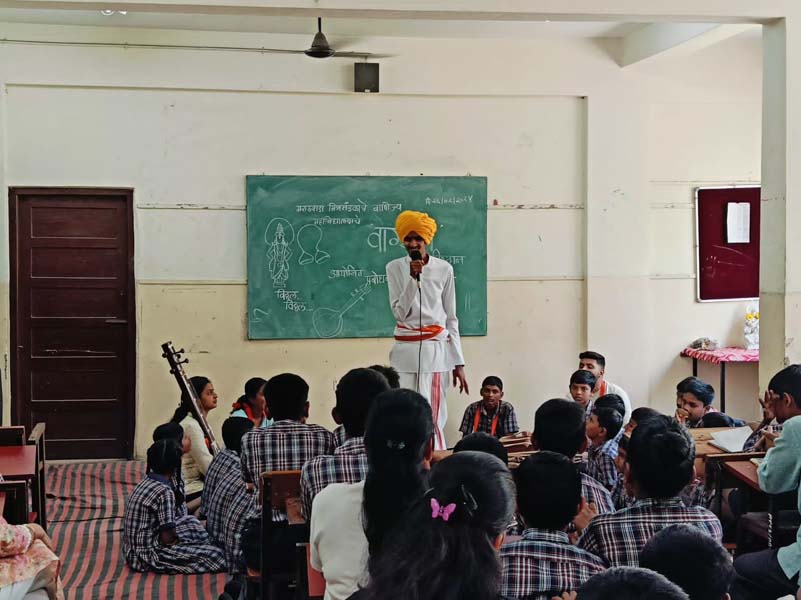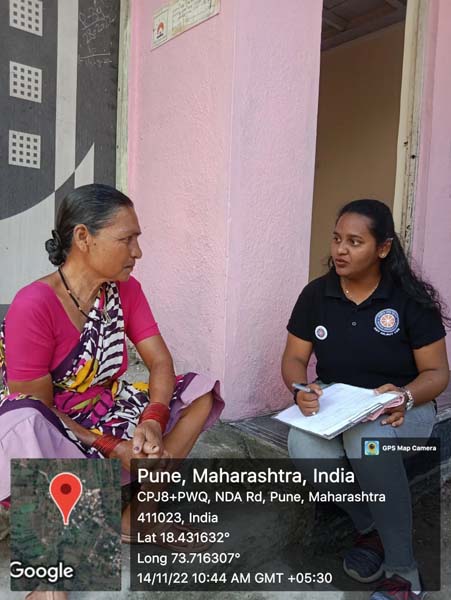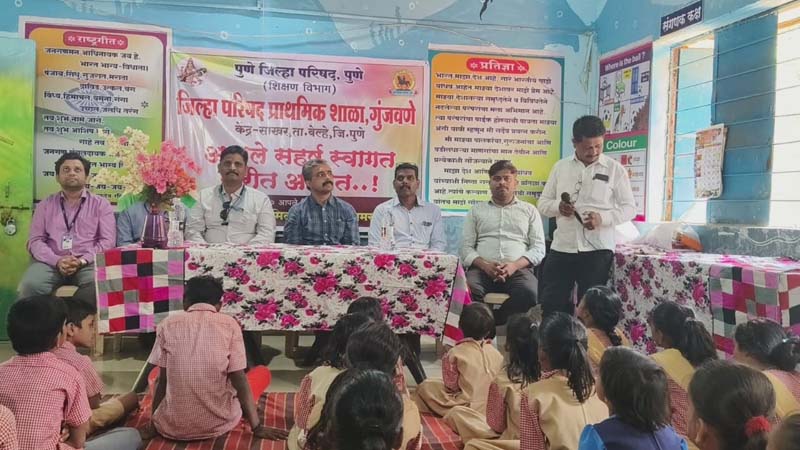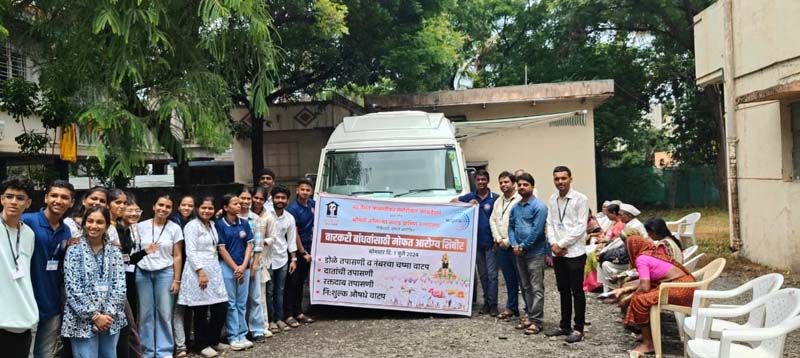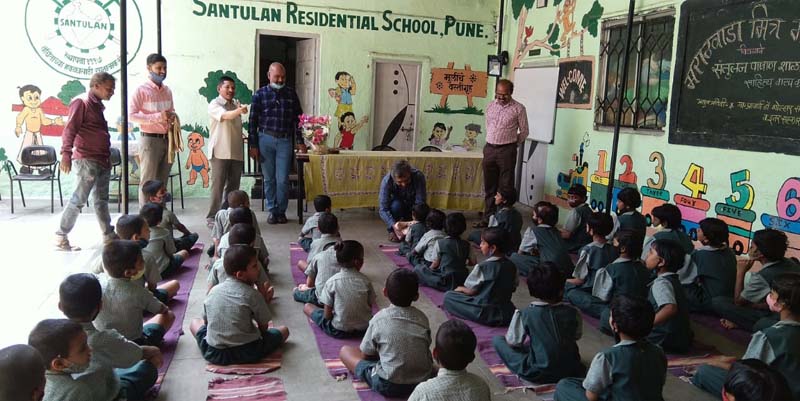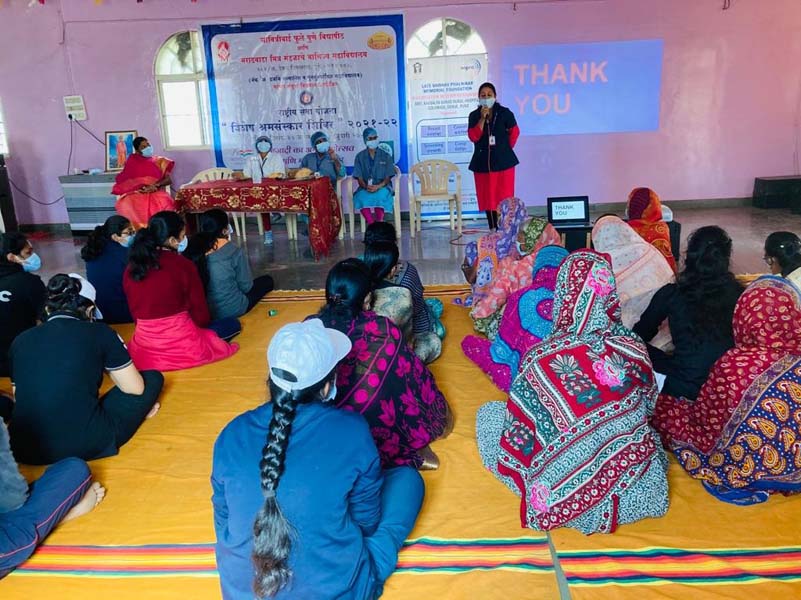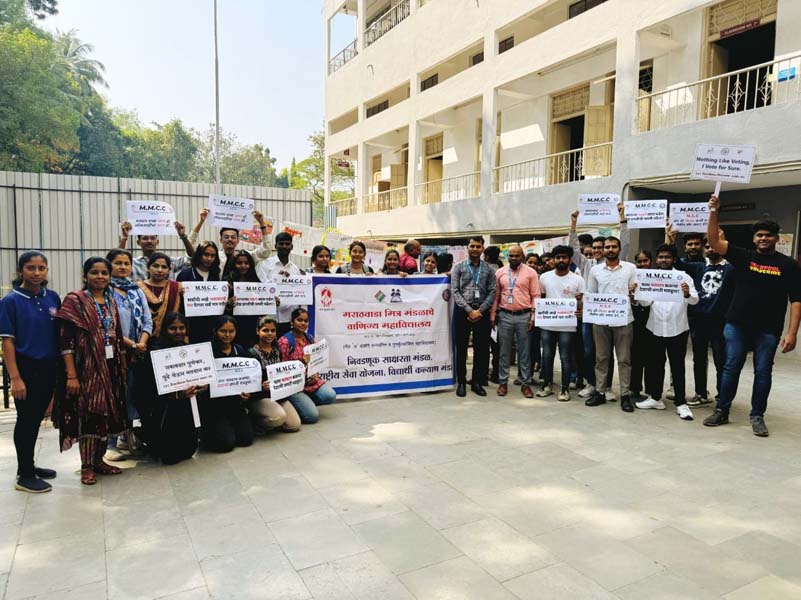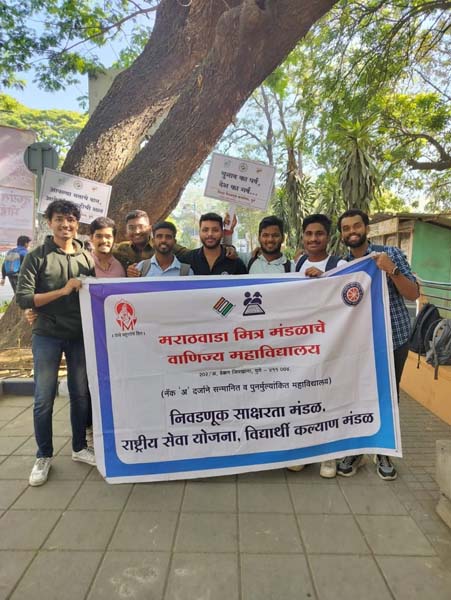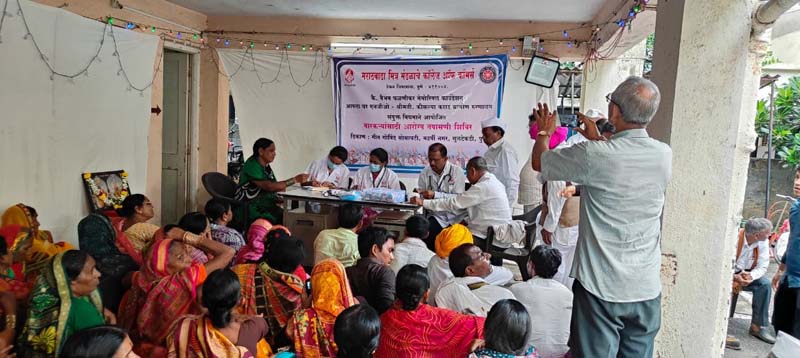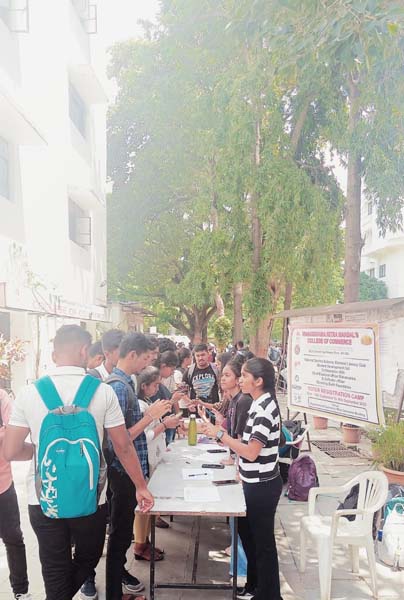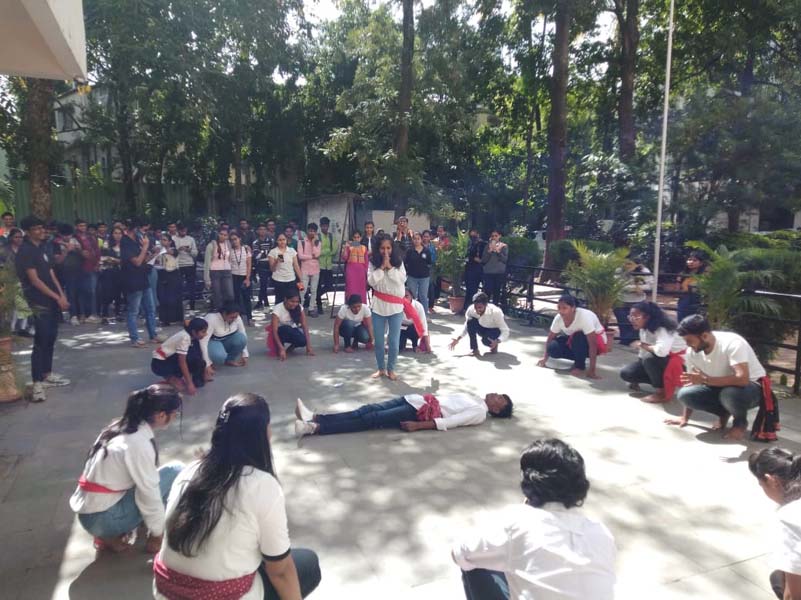Institutes Best Practice
- Home
- Institutes Best Practice

Practice No. 1
Objectives of the Practice:
- To understand the post-pandemic changes in behavioral patterns among the students.
- To examine the impact of behavior changes on the learning abilities of students.
- To address the challenges faced by students by understanding their emotional and psychological needs.
- To suggest effective interventions with the help of experts in the field of mental wellbeing for the students.
The Context:
Post-pandemic scenario, the college has witnessed a drastic change in the teaching and learning process. Students in their formative years of socialization, academic progress, and identity formation have experienced disruption in learning. The sudden switch to physical distancing norms, isolation, online learning, and the absence of extracurricular activities cause long-term implications on their emotional and mental well-being.
The Practice:
The college has effectively addressed this challenge in association with the Centre for Mental Health Law and Policy by initiating an intervention called `Connect` that signifies reaching out to students and staff to ensure their mental well-being and to provide them with post-trauma consultation.
As part of mitigation measures, our institution has organized workshops and orientation programs under ‘MMCC Connect.’ Students have received counseling and moral support from professional experts, teachers, and fellow students. Additionally, some students have been trained as volunteers to achieve positive outcomes through effective intervention. These volunteers are tasked with identifying students who may be experiencing psychological issues that could lead to suicidal thoughts. Proper training has been provided to these selected volunteers to connect with mentally distressed students and understand their emotional needs.
Along with the students, the college has identified the role of the teacher as a facilitator of this flagship program. Hence, the college has organized workshops and training for the teachers through which they learned about handling sensitive, emotional, psychological, and mental health-related situations among the students. Activities such as Sources of Joy, Art of Living, and Environmental Concerns for Healthy Mind have been conducted under the MMCC ‘Connect Initiative’ to improve the social quotient of students.
Evidence of Success:
We have witnessed that the Interventions for positive behavior change among the students without affecting his/her natural behavioral settings through various activities lead to their holistic development by inculcating among them various learning skills, life skills, and literacy skills. Students who benefited from the initiative saw a positive change in attitudes.
Problems Encountered and Resources Required :
Lack of personal communication with students due to COVID-related restrictions is a major constraint in dealing with mental health issues.
To address the above issue we required organizations and experts in the field of mental well-being who can provide effective interventions for the issue.
Notes:
[We have observed that post-COVID, students are increasingly facing issues related to mental stress, depression, loneliness, and short attention spans. It is reflected profoundly in their learning abilities. Hence, the institution makes this activity its flagship program to take care of the mental well-being of students]
Practice No. 2
Objectives:
- . To instill in students the moral and ethical principles and life skills they need for holistic development through a variety of student activities.
- To leverage community outreach initiatives for acquainting students about social harmony and fostering a sense of social responsibility.
- To inculcate in students the value of ‘dignity for labor’ by exposing them to a variety of work occupations.
Context:
In order to equip students with essential life skills and social awareness, the college strives to promote pluralistic and multicultural ideals, where all faiths and views coexist democratically. The institution incorporates leadership and teamwork as core values into its programs to help students develop critical life skills and become more motivated in their actions.
The Practice:
MMCC has initiated the following Practices:
- The college conducted a Personality Development Program at the orphanage Apla Ghar. The Apla Ghar project is located near Donje village, at the foothills of the Sinhgad Fort. Our students and teachers took the initiative to offer digital and personality development skills to children in the orphanage. This initiative not only provides orphaned children with computer literacy, but it also instills confidence and self-esteem, which are critical for their future success. This program has developed into a continual activity over a period. Every Saturday, students and two staff members visited the Apla Ghar Foundation to teach children digital literacy skills. During the process, the children and teachers developed bonds of affection. They experienced the severity of the suffering and the seriousness of the problem intimately.
- Furthermore, in partnership with the NGO Santulan, the college organized a Value Education Camp for Mine Workers’ Children Schools at Wagholi, Pune, benefiting 110 boys and 90 girls. This initiative aimed to imbue young minds with moral values, fostering ethics and empathy vital for personal and social growth.
- MMCC’s commitment to empowering young women was evident in the Nirbhay Kanya Abhiyan, which provided expert guidance on health, hygiene, mental wellness, and self-defense, instilling fearlessness and self-reliance in girl students.
- The institute is resolute in bridging the gap between theoretical knowledge and practical application by exposing students to the realities and economic disparities prevalent in society. The college conducted the Rihe Camp at a government primary school, engaging 55 students from Rihe village. This initiative focused on moral values, nurturing ethical consciousness, and civic responsibility among young learners.
Evidence of Success:
The college evaluated the impact of community involvement programs based on stakeholder feedback. Students indicated improvements in attitudes, social skills, initiative, leadership, and resilience. The teachers who took part shown enhanced empathy and social awareness. Beneficiary schoolchildren reported considerable benefits.
Problems Encountered and Resources Required:
Adapting to changes in academic calendars and examinations presented difficulties in time management and coordination. The variety of courses made it difficult to select appropriate programs. Students balanced study plans, assignments, and exam preparation. Prioritization, scheduling, and support from teachers were critical to success.

